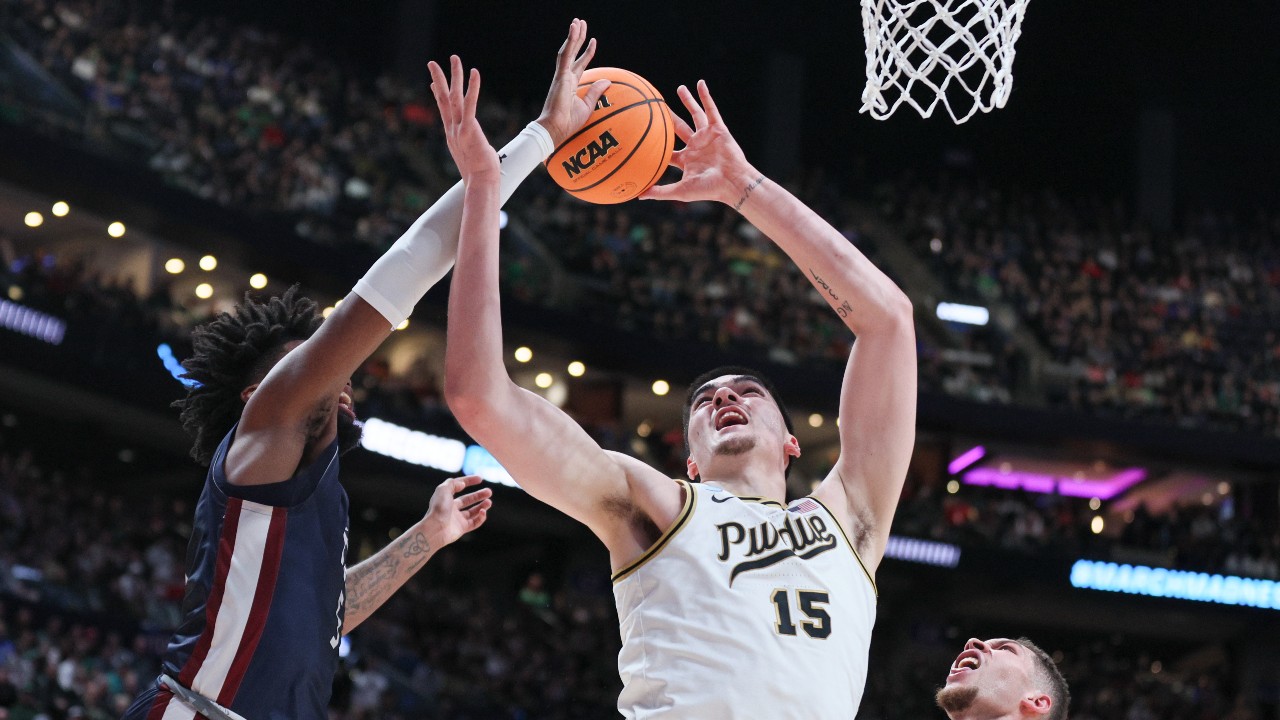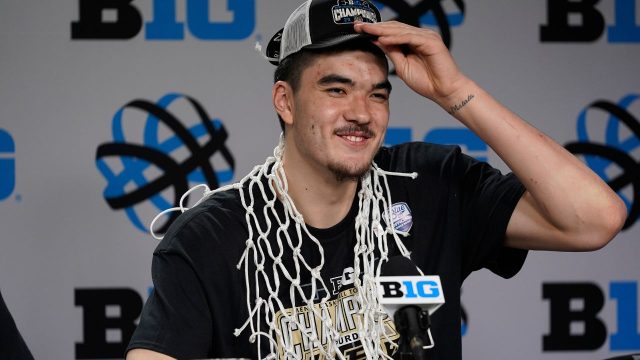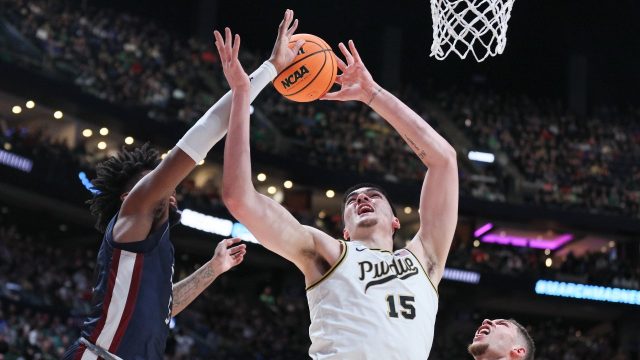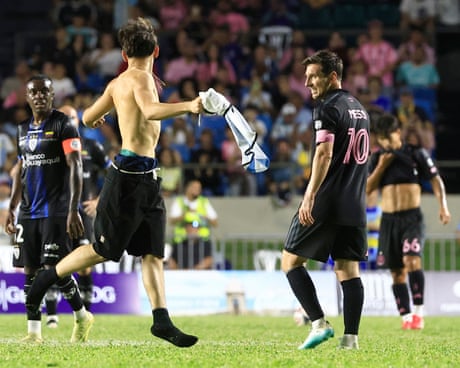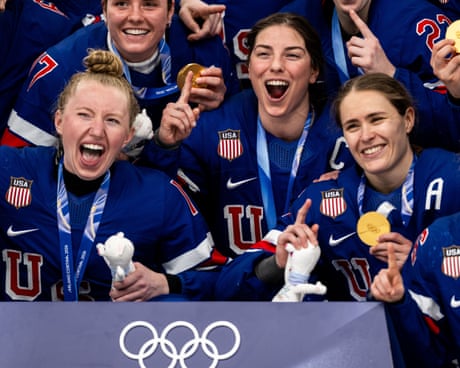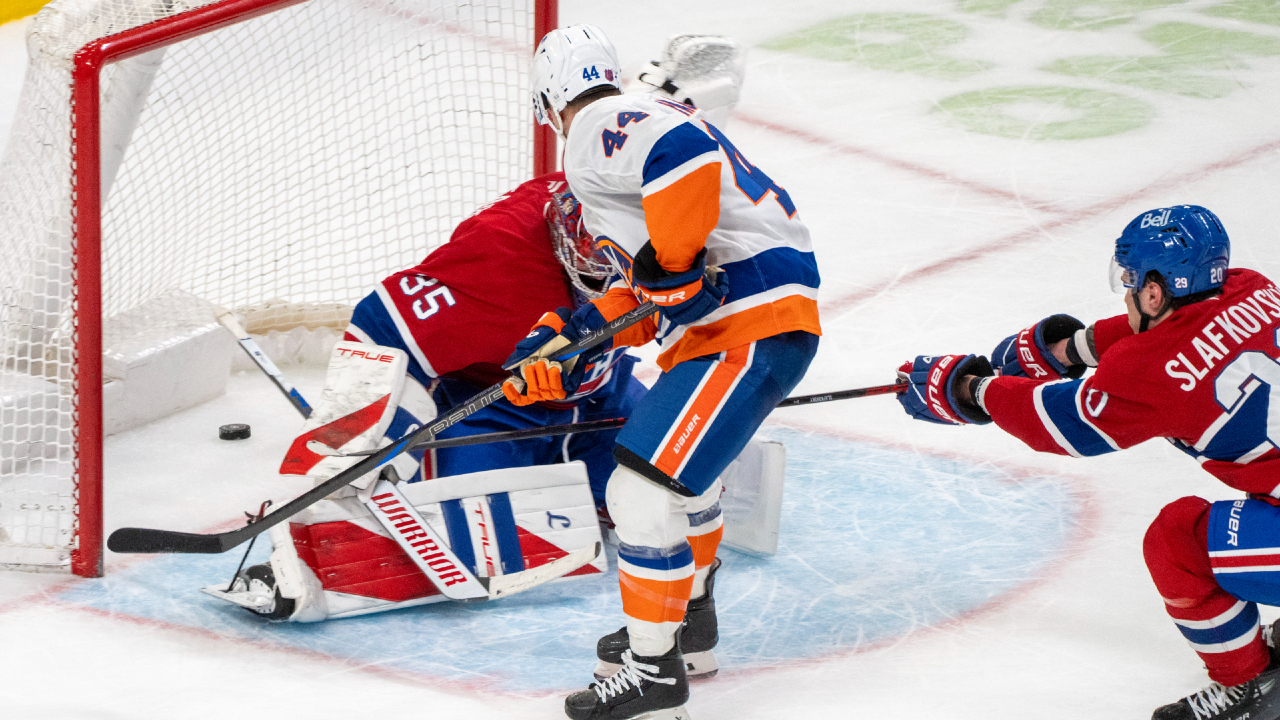
This weekend, Zach Edey will complete the most successful season a Canadian has ever had in U.S. college basketball.
The star centre for the Purdue Boilermakers is the odds-on favourite to be named the Naismith men’s player of the year on as part of the festivities for the Final Four in Houston. Given he has already been recognized as the Associated Press player of the year, has won three other national player-of-the-year awards, was a consensus first-team all-American and conference player of the year in the Big 10, it’s considered a given that he’ll complete the sweep.
By the standards of Canadian basketball, national player-of-the-year recognition is unprecedented. Former Canadian women’s team star Stacey Dales was twice a first-team All-American at the University of Oklahoma in 2001 and 2002, as was Bev Smith at Oregon in 1981 and 1982, but neither earned national player-of-the-year recognition. On the men’s side, only R.J Barrett (2018-19) and Kelly Olynyk (2012-13) earned first-team nods.
But then again, almost everything Edey has done so far in his brief basketball career is some version of ground-breaking. The 7-foot-4, 300-pound not-so-gentle giant from Toronto is still relatively new to the game, having not taken the sport seriously until he was well into high school after first playing hockey and baseball. He was a moderately recruited reserve as a freshman and a role player as a sophomore before turning into the most dominant player in Division 1 as a junior.
“Let’s be real here, I don’t think there’s been another national player of the year that’s spent five years in organized basketball – two of which he barely played – and reached the level he’s reached,” said Vidal Messiah, the former Canadian national team member who helped launch Edey on his path this time of year in 2018.
Messiah noticed Edey – who had just started playing house league basketball at Christmas — playing at a tournament and encouraged him to join his Northern Kings summer AAU team and connected him with the IMG Academy in Florida for his last two years of high school.
But perhaps the most amazing thing about Edey is that despite his size and his college resume, where his career takes him from here is unclear.
Not all that long ago, there wouldn’t have been any question: if you played centre and were the best player in college basketball, you were going straight to the top of the NBA draft. His production would seem to warrant it, as Edey averaged 22.3 points, 12.9 rebounds and 2.1 blocks while shooting 60.7 per cent from the floor a Purdue team that hovered around the top of the college rankings all season. They were just the second No.1 seed to lose to No. 16 in the first round of the NCAA tournament, but Edey was hardly to blame, as he delivered 21 points, 15 rebounds and three blocks tournament opening loss.
In 2012, Anthony Davis was Naismith player of the year and the No. 1 pick in the draft. Same thing for Andrew Bogut in 2005 and Tim Duncan in 1997. Marcus Camby won the award in 1996 and was the second pick, but before that, the line is unbroken: Lew Alcindor (now Kareem Abdul-Jabbar) won the first Naismith award in 1969 and was the No. 1 pick in the draft, as was Bill Walton and Ralph Sampson, who each won the award three times and were the first-overall picks in 1974 and 1983, respectively.
But basketball has changed at a lighting pace since big men ruled the hardwood. Teams value three-point shooting and spacing more than ever before, changing the role of centres not named Joel Embiid or Nikola Jokic, who are exceptions to the rule that centres are most often role players in today’s game.
In this changed landscape, Edey is an over-sized underdog, hoping to prove his worth against the odds. At ESPN, highly regarded draft expert Jonathan Givony rated Edey as a late second-round pick, 53rd overall, while Sam Vecenie at The Athletic has him pegged to go a little higher, at 45th.
He still has another year of eligibility and hasn’t declared his intentions regarding the draft, but no matter when he comes out, it’s widely anticipated he’ll face challenges.
The issue, ironically, is his size. Is it possible to be too big for NBA basketball?
Maybe not, but size alone isn’t enough to compete in the NBA if there’s not some other attributes, mobility being one of them.
“The reality is just that NBA has changed a lot in the last 10, 20, 30 years,” said Toronto Raptors centre Jakob Poeltl, who won the Kareem Abdul-Jabbar award as the best centre in college basketball in 2016 and went ninth overall in the draft to Toronto that summer. “Now, he’s going to get singled out in pick-and-roll situations, so he’s really going to have to work on his game there and be able to hold his own to stop some of the faster guards out there in the NBA and still be an effective rim protector without being able to just be in the paint. In the NBA, the rules are set up in to entice scoring and all this stuff. So, those are definitely some challenges (for big men) coming out of college.”
But those who have tracked Edey’s progress closely believe he’s capable of overcoming his perceived weaknesses, and has strengths that haven’t yet been realized playing primarily at the rim at both ends for Purdue.
“Zach is a worker,” said Rowan Barrett, the men’s national team general manager who put Edey on the senior roster last summer with an eye toward having him in the fold at the FIBA Basketball World Cup this summer and the 2024 Olympics in Paris. “He was in the gym before practice, after practice, before the second practice, after the second practice, putting work in with (Canada Basketball development coach) Michael Meeks. Left-hand and right-hand hooks, free throws, stepping out to 15 feet. His season speaks to that work.
“And he’s more mobile than people think, and he’s doesn’t get tired,” added Barrett. “That’s hard for a lot of big guys. But Zach runs well and it’s very clear he’s got a good tank.”
Although Purdue used Edey almost exclusively as a post-up threat, his improving free-throw shooting is evidence that he’s capable of adding jump-shooting to his game, which is important for spacing reasons in the NBA. Of course, his value as a screener is self-explanatory.
But it’s two less tangible qualities that Edey’s supporters believe will help him in his quest to play in the NBA.
The first is that Edey relishes being enormous. Not all big players do. If you’re going to make your size and strength part of your identity as a player, you have to be determined to use it.
There are a handful of “big” bigs in the NBA (again, non-Jokic/Embiid category) who rely more on their size than quickness or athleticism as their calling card: Brook Lopez with Milwaukee, Steven Adams with Memphis, Ivica Zubac with the Clippers and Jonas Valanciunas with New Orleans all come to mind.
A common thread? They have some bully in them. “You have to have a toughness,” said Miami Heat head coach Eric Spoelstra. “You have to be committed to doing tough things … you have to roll up your sleeves, get in the trenches and do tough things. There’s no shortcuts, not tricks.”
That won’t be a problem for Edey. “He’s got a mean streak to him,” said Barrett, approvingly.
Added Messiah: “[Zach] knows he’s extremely big, he knows he’s extremely strong and he loves to mix it up. He loves to be physical, and he loves to dominate with his physical presence. If you have the mindset where you’re just going to baby-brother guys all day, then it works, because there’s not much baby brother can do when you’re eight inches taller and fifty pounds heavier. He definitely imposes his will, physically and mentally.
“I had the rare opportunity to guard Yao Ming when I played for Canada,” said Messiah, a 6-foot-7 forward who played at 230 pounds during his career, of the Hall of Fame centre who stood 7-foot-6 and weighed well over 300 pounds. “But we were in China and I’m guarding Yao Ming and I’m like, ‘holy crap’.
“There was nothing I could actually do … he could just eclipse me at any time, and Zach’s got similar size and strength, if not more. He makes you feel inferior and almost hopeless once he decides to put the ball in the basket and take you with him.”
So check that box: the biggest athlete in college basketball plays big.
But perhaps the most important determinant in Edey’s NBA future won’t be his size or his mobility, but his basketball intelligence and emotional IQ – as it is for all but the most gifted NBA players – and it’s these qualities where Edey shines brightest.
“My first scouting report on him was, ‘This guy is brilliant.’ The way he processes the game is unbelievable for someone who was new to the game, let alone for his position,” said Messiah. “Bigs don’t have to run the offense, they have to do a job, but he understood ours better than guards we’ve had. And (at Purdue), he’s handled the atmosphere, the game pressure, the distractions, calming your nerves, having a thick skin – he’s handled that better than any player I’ve ever seen, to be honest.
“You can’t go from where he was to player of the year without being extremely intelligent. Extremely.”
All those attributes – along with his unique physical tools – have made Zach Edey the best player in college basketball this year and the most successful college player Canada has ever had.
All that remains it to find out if he can convince the NBA that he can do it at the top level too.


